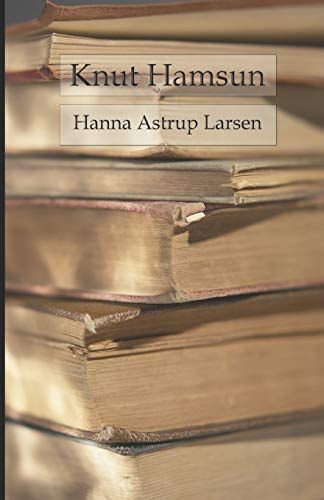
Knut Hamsun
Knut Hamsun (neé, Knud Pederson) was - for all intents and purposes - the epitome of an accomplished writer. Successful, respected, lauded, and the producer of a significant body of work - both with regard to quality and volume. Winner of the Nobel Prize in Literature for his book Markens Grøde (which was openly praise by H.G. Wells), Hamsun was described by Thomas Mann as a 'descendant of Fyodor Dostoyevsky and Friedrich Nietsche'. All high praise indeed, but it was overshadowed during his post-World War II arrest and trial - an action brought about by the Norwegian author's enamor with the Nazi party, and his meetings with the likes of Goebbels and Hitler. Even with all of this in mind, one cannot discount the literary works he created, though we can certainly cast a jaundiced eye upon the man himself, and his actions and choices in his personal life. Within this book, Larsen has divided Hamsun's body of work into three distinct phases: 'The Wanderer', 'The Poet', and 'The Citizen'. Hamsun (who was still alive at the time this work was originally poublished) went on to write several more novels and - as such - those works are not covered within the pages of this literary critique.